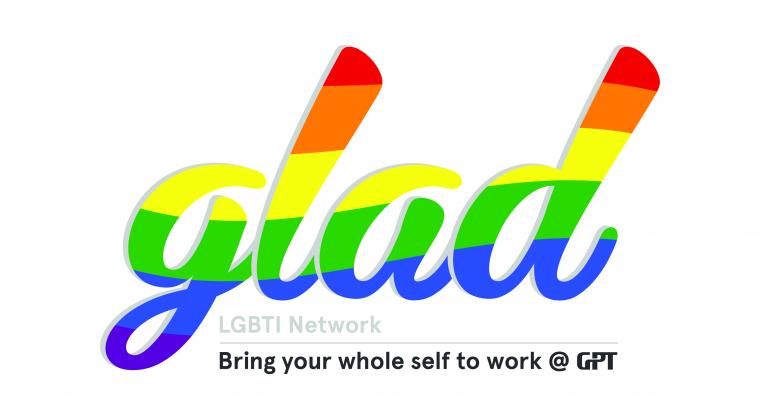The GPT Group last week officially launched a support network aimed at promoting workplace inclusion and networking for Lesbian, Gay, Bisexual, Transgender and Intersex (LGBTI) staff members.
The GPT LGBTI Awareness & Diversity Network (GLAD), whose tagline is ‘Bring your whole self to work’, aims to foster a culture of inclusion at GPT where LGBTI employees can feel safe and comfortable in being themselves at work.
“For many LGBTI people, throughout their lives they have to hide who they are. You go to great lengths to cover that up so people don’t find who your real self is,” said GPT Regional General Manager and GLAD Lead Antony Keenan at the launch.
“It’s everything from being asked, ‘What did you do on the weekend?’, to ‘How you dress?’, ‘How you talk?’. You have to constantly think about how you are responding and there’s a lot of energy that goes into that,” said Keenan.
“In most places you have to come out over and over again. Simple things like meeting people at work, in a taxi or a party, things like being asked ‘What does your wife or girlfriend do?’. You need to think and decide, ‘Is this a safe place to disclose who I am?’.”
“But what we can do is make GPT a safe place to be who you are. If you come to work bringing your whole self you don’t have to use all of that energy covering who you are, which ultimately will make you more productive as well,” explained Keenan.
As a subcommittee of GPT’s Diversity and Inclusion Working Group, GLAD plans to roll-out education sessions across the Group in 2017 and has partnered with Pride in Diversity – the national not-for-profit employer support program for LGBTI workplace inclusion.
GLAD also plans to review GPT’s policies and procedures to ensure they are inclusive for the LGBTI community and will establish an ‘Ally’ program for straight advocates for LGBTI workplace inclusion.
Helping launch GLAD in GPT’s offices in Sydney’s MLC Centre last week was the pioneering LGBTI advocate Jason Ball who in 2012 became the first male Aussie Rules player to come out as gay in the national media.
Ball shared his experiences of being gay, which started with feelings of “self-loathing” after realising he was gay at 13 to being suicidal at 15. But Ball’s journey of self-acceptance started when one of his female friends was very supportive after he confided about his sexuality. This was followed by his friends and family providing their support.
“But the football club seemed to be the one place where I’d never be accepted,” Ball told the GLAD launch.
“Homophobic language was a regular part of the game, whether it was coming over the fence, coming from my coach or even my own team mates. Every time I heard these words it felt like a reminder if they found out who I was, I wouldn’t be accepted. I thought I’d be bullied, maybe I’d get kicked off the team, maybe I wouldn’t be able to play football anymore, which was the game that I loved.”
“I went to great lengths hiding my sexually in that environment. What that looked like second guessing everything that I said and I did. I would think about the way I walked, about the way I talked, I wouldn’t get involved in conversations about relationships or what I was doing that weekend, what kind of music I liked, out of fear they might be able to figure it out.”
Ball then shared the story how his team actually came out in support of him when he finally came out. “In the end, all the fears I had about how my teammates would react weren’t actually realised,” he said. Ball said the homophobic language – which was coming from a place “ignorance” rather than hatred – was a key factor that made him keep his sexuality a secret.
Ball has since gone on to promote inclusion across the community and was the key protagonist in seeing the establishment of the annual Pride Game played between the Sydney Swans and St Kilda Football Clubs.
“There are a lot of parallels between a sporting club and the workplace,” said Ball. He said it “made business sense for an organisation that wants to get the most out of its people to create a culture that it welcoming and accepting of everyone”.
“I find that if you are silent on the issue of sexuality, which for much of my life growing up my parents didn’t say any homophobic things, but without hearing anything positive or affirming I expected or feared the worst.”
Jason was recently named the 2017 Victorian Young Australian of the Year in recognition of his efforts in advocating against homophobia and for greater inclusiveness in sport.
